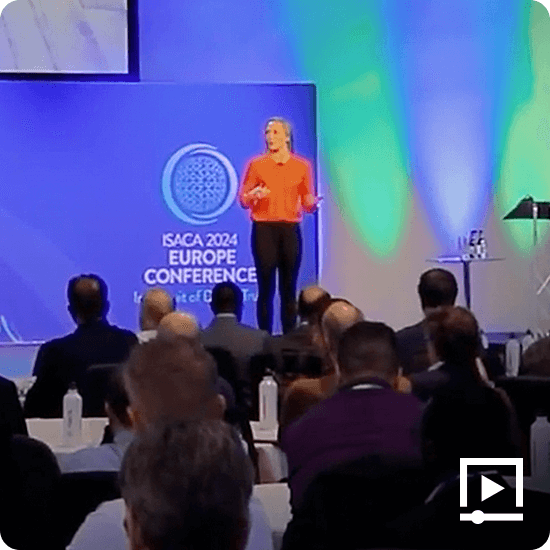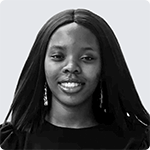



Editor’s note: The ISACA Foundation awards yearly SheLeadsTech Scholarships (formerly called ISACA Women’s Month Scholarship) for global students who identify as women and are pursuing a degree in IT audit, risk, security, assurance or cybersecurity. Awardees will receive funding for their undergraduate or graduate degree and a career-building bundle; find out more about the open scholarship and how to apply here by 6 May 2025. See the Q&A interview below to learn about several of last year’s scholarship winners. For more information on the scholarship, contact foundation@isaca.org. To learn more about SheLeadsTech, visit here .
ISACA Now: What is your educational focus? Can you share a defining moment that reinforced your passion for this field?
 Mehak Sharma, Undergraduate Student, Dept. of Computer Science and Engineering, Indian Institute of Technology Roorkee: I am a final-year Computer Science student at IIT Roorkee, with a strong focus on systems. A defining moment for me was during my internship at JP Morgan Chase, where I worked on securitized products analytics and witnessed the critical role cybersecurity plays in financial systems. This experience reinforced my passion for securing digital infrastructures and motivated me to delve deeper into cybersecurity.
Mehak Sharma, Undergraduate Student, Dept. of Computer Science and Engineering, Indian Institute of Technology Roorkee: I am a final-year Computer Science student at IIT Roorkee, with a strong focus on systems. A defining moment for me was during my internship at JP Morgan Chase, where I worked on securitized products analytics and witnessed the critical role cybersecurity plays in financial systems. This experience reinforced my passion for securing digital infrastructures and motivated me to delve deeper into cybersecurity.

Adetola Olubunmi, System Engineering Management University of Lagos: My educational background is in cloud and systems engineering management, with fundamental certifications in Microsoft. An essential event for me occurred during a large-scale email migration project while ensuring zero data loss and maintaining solid security throughout the process, demonstrating cloud security's importance and relevance. The experience strengthened my desire to pursue a career in this particular field.

Vivian Olatunji, Cybersecurity Master’s Student (Cyberus EMJM), Université Bretagne Sud: My educational focus is Cybersecurity, with a specialization in Software Cybersecurity. My interest in this field started in secondary school when a magazine with a group of masked ethical hackers circulated in my class, and since then, I’ve been deeply passionate about cybersecurity. A defining moment for me was seeing how lapses in cybersecurity often affect women disproportionately, which has motivated me to work toward making the cyberspace safe for everyone.

Nicole Cordero, IT Support, Cybersecurity Professional: My educational focus is to get my Bachelor’s of Science in Information Technology and then my Master’s in Cybersecurity. I’ve always felt passionate about protecting others and I knew I wanted to get into cybersecurity long ago but it wasn’t until the fairly recent MOVEit hack that I became livid at the current state of things. The number of victims was in the millions but a lot of them include schoolchildren, retirees, hospitals, or those receiving Medicaid and Medicare. It felt as though the vulnerable and those likely to have little means for recourse were targeted. I saw the cost of the human toll because I lived it. Someone has to fight for them.
Were there any role models or mentors who helped shape your path?
Mehak Sharma: I have been fortunate to have mentors who guided me at different stages. My professors and industry mentors, especially through programs like ISACA’s mentorship initiative, have provided invaluable insights into cybersecurity and risk management. Their encouragement helped me navigate challenges and build confidence in pursuing this field.
Adetola Olubunmi: I have had mentors who have contributed to my technical development in cloud support and taught me how to efficiently navigate the IT industry. Their assistance has been invaluable in helping me comprehend the value of combining technical knowledge with strong problem-solving skills.
Vivian Olatunji: In my cybersecurity journey, I’ve had the privilege of learning from various mentors and training programs. These include the CyberGirls Fellowship by Cybersafe Foundation, the Women Techsters Fellowship by Tech4Dev, the CyBlack Internship, the 2024 mentorship cohort by Dr. Iretioluwa Akerele, and a GRC mentorship by Adewale Adeife. Each of these has contributed to my growth in the field.
Nicole Cordero: My brother has been the biggest role model and is my best friend. He’s been a mentor to me with all things technology and such a positive influence when it comes to pushing me to learn more and to do more. I’m amazed at all the things he can do in a day! He can rebuild several switches or computers, add working modifications, write code, and then learn some new facet of technology that I’ve never heard of, but he only wanted to do it because the scant resources on it were lacking.
What does this scholarship mean to you, both personally and professionally?
Mehak Sharma: This scholarship is a testament to my dedication to cybersecurity and my commitment to making a meaningful impact in this field. Personally, it has been a source of motivation and recognition for my efforts. Professionally, it has opened doors to a global community of experts, providing me with learning opportunities and networking that will shape my future career.
Adetola Olubunmi: This scholarship is a significant achievement for me. Professionally, it provides the means to pursue advanced certifications and specialized training in cloud security. Personally, it validates my desire to advance in this industry and connects me to ISACA's global professional community.
Vivian Olatunji: This scholarship means a lot to me. Beyond the financial support, it is a recognition of my dedication to cybersecurity. It also gives me access to valuable resources, expert insights, and mentorship, all of which will help me grow and advance in my career.
Nicole Cordero: This scholarship meant so much to me in a time of transition and setbacks. I had to withdraw from my transferring university because I just couldn’t afford the tuition. I had spent years as a single mom, working full time and going to community college with a plan I thought was rock solid only to realize that it wasn’t. I could hardly pay my bills and now had to pay so much for university that I broke down. After a few days of despair, I took a deep breath and said to myself “Figure this out, you can and always have.” I applied for this scholarship, rearranged my educational path, and started looking for new jobs. It was a herculean effort, but it’s not in me to give up.
What are your future career goals?
Mehak Sharma: I aspire to work at the intersection of cybersecurity, risk management and financial technology, helping build secure and resilient systems. I aim to contribute to research and industry advancements in digital trust and financial security while mentoring aspiring professionals in the field.
Adetola Olubunmi: My goal is to transition from cloud support to a specialized role in cloud security. I want to use my technical background and advanced security knowledge to help organizations, particularly in Africa, implement secure and scalable cloud solutions.
Vivian Olatunji: My goal is to work as a GRC analyst, where I can manage and reduce a company’s risks. I also plan to grow my cybersecurity awareness platform, CTRL+SAFE (Cyber Threat Awareness and Secure Advocacy for Equity), where I educate people on best practices and raise awareness about cyber violence against women. CTRL+SAFE addresses issues such as cyberbullying, deepfake abuse and accessibility. In the future, I hope to be involved in shaping policies that promote the responsible use of technology, especially Artificial Intelligence (AI).
Nicole Cordero: My future career goals include moving into the cybersecurity position that my new job hired and is grooming me for. I didn’t know who I was speaking to the CIO before my interview, and we were just geeking out about history. I was shocked when he told me who he was, and I remember feeling this strange swell of hope toward the end of my interview because he said, “It sounds like all things are pointing to cybersecurity for you, well that’s perfect for us because that’s in our 3-year plan.” The CIO and my incredible leadership team seem to be making good on that promise. I currently work in generalized IT support but have been pulled into the fray of cybersecurity and compliance already. We completed our CMMC Level 2 audit last week, and he just appointed me to a two-person team to develop a cybersecurity training program for our entire organization. Not to mention, I now have a livable wage with just my associate’s.
What advice would you give to other women considering this field?
Mehak Sharma: Cybersecurity is an ever-evolving and rewarding field where diverse perspectives are invaluable. I encourage women to be curious, seek mentorship, and never hesitate to take on challenges. Building a strong technical foundation and staying engaged in communities like ISACA can open incredible opportunities.
Adetola Olubunmi: Begin with fundamental knowledge and certifications to establish a solid foundation, then gradually enhance your skills over time. Accept challenges as opportunities to learn and improve, look for mentors who can help you, and remember that your unique perspective is a significant tool when addressing complex problems.
Vivian Olatunji: My advice would be to go for it and not let the societal barriers women often face hold you back. Take every opportunity to learn and grow, and don’t hesitate to apply for them. Believe in your abilities and take the leap!
Nicole Cordero: Don’t give up on yourself, don’t sell yourself short, and don’t be afraid of change. Lastly, there’s a saying to live by: If your car breaks down and you’re just standing around waiting for help, help may never come ... but if you start pushing, watch others join you. I owe 70% of my success to effort and the other 30% to those who’ve lifted me up and helped me to keep that momentum. Someday, I hope to do the same for another young woman in that same position.
